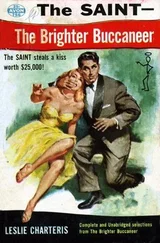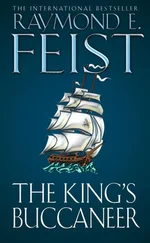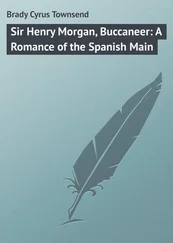Rolf Boldrewood - A Modern Buccaneer
Здесь есть возможность читать онлайн «Rolf Boldrewood - A Modern Buccaneer» — ознакомительный отрывок электронной книги совершенно бесплатно, а после прочтения отрывка купить полную версию. В некоторых случаях можно слушать аудио, скачать через торрент в формате fb2 и присутствует краткое содержание. ISBN: , Жанр: foreign_antique, foreign_prose, на английском языке. Описание произведения, (предисловие) а так же отзывы посетителей доступны на портале библиотеки ЛибКат.
- Название:A Modern Buccaneer
- Автор:
- Жанр:
- Год:неизвестен
- ISBN:http://www.gutenberg.org/ebooks/35431
- Рейтинг книги:3 / 5. Голосов: 1
-
Избранное:Добавить в избранное
- Отзывы:
-
Ваша оценка:
- 60
- 1
- 2
- 3
- 4
- 5
A Modern Buccaneer: краткое содержание, описание и аннотация
Предлагаем к чтению аннотацию, описание, краткое содержание или предисловие (зависит от того, что написал сам автор книги «A Modern Buccaneer»). Если вы не нашли необходимую информацию о книге — напишите в комментариях, мы постараемся отыскать её.
A Modern Buccaneer — читать онлайн ознакомительный отрывок
Ниже представлен текст книги, разбитый по страницам. Система сохранения места последней прочитанной страницы, позволяет с удобством читать онлайн бесплатно книгу «A Modern Buccaneer», без необходимости каждый раз заново искать на чём Вы остановились. Поставьте закладку, и сможете в любой момент перейти на страницу, на которой закончили чтение.
Интервал:
Закладка:
How shall I describe my feelings, landed at last among the charmed isles of the South, where I had come to stay, I told myself? Generally speaking, how often is there a savour of disappointment, of anticipation unrealised, when the wish is achieved! But the reality here was beyond the most brilliant mental pictures ever painted. All things were fresh and novel; the coral reefs skirting the island shore upon which the surf broke ceaselessly with sullen roar; cocoa-palms bowed with their feathery crests above a vegetation richly verdurous. The browns and yellows of the native villages, so rich in tone, so foreign of aspect, excited my unaccustomed vision. Graceful figures, warm and dusky of colouring, passed to and fro. The groves of broad leafed bananas; the group of white mission houses; the balmy, sensuous air; the transparent water, in which the very fish were strange in form and hue, – all things soever, land and water, sea and sky, seemed to cry aloud to my eager, wondering soul, "Hither, oh fortunate youth, hast thou come to a world new, perfect, and complete in itself – to a land of Nature's fondness and profuse luxuriance, to that Aïdenn, long lost, mysteriously concealed for ages from all mankind."
At the Marist Mission at Tongatabu I was received most kindly by the venerable Father Chevron, the head of the Church in Tonga. His had been a life truly remarkable. For fifty years he had laboured unceasingly among the savage races of Polynesia, had had hairbreadth escapes, and passed through deadliest perils. Like many of his colleagues he was unknown to fame, dying a few years later, beloved and respected by all, yet comparatively "unhonoured and unsung." During the whole course of my experiences in the Pacific I have never heard the roughest trader speak an ill word of the Marist Brothers. Their lives of ceaseless toil and honourable poverty tell their own tale. The Roman Catholic Church may well feel proud of these her most devoted servants.
One morning Captain Robertson joined me; the Father seemed pleased to see him. On my mentioning how kindly they had treated me, a stranger and a Protestant, he replied, —
"Ay, ay, my lad; they are different from most of the missionaries in Tonga, anyway, as many a shipwrecked sailor has found. If a ship were cast away, and the crew hadn't a biscuit apiece to keep them from starving, they wouldn't get so much as a piece of yam from some of the reverend gentlemen."
I asked Father Chevron if he knew Captain Peese and Captain Hayston.
"Yes! I am acquainted with both; of the latter I can only say that when I met him here I forgot all the bad reports I had heard about him. He cannot be the man he is reputed to be."
I was sorry to part with the good Father when the time came to leave. But a native messenger arrived next day with a note from the captain, who intended sailing at daylight.
So I said farewell and went on board.
We called at Hapai and Vavau, the two other ports of the Friendly Islands, sighting the peak of Upolu, in the Navigators', three days after leaving the latter place.
We rounded the south-east point of Upolu next day, running in so close to the shore that we could see the natives walking on the beaches. Saw a whaleboat, manned by islanders and steered by a white man, shoot through an opening in the reef opposite Flupata. For him we tarried not, in spite of a signal, running in as we were with the wind dead aft, and at four o'clock in the afternoon anchored in Apia harbour, opposite the American consulate.
The scenery around Apia harbour is beauteous beyond description. Spacious bays unfold themselves as you approach, each revealing the silvery white-sanded beach fringed with cocoa-palms; stretching afar towards the hills lies undulating forest land chequered with the white houses of the planters. The harbour itself consists of a horseshoe bay, extending from Matautu to Mullinu Point. Fronting the passage a mountain rears its summit cloud-enwrapped and half-hidden, narrow paths wind through deep gorges, amid which you catch here and there the sheen of a mountain-torrent. On the south the land heads in a graceful sweep to leeward, until lost in the all-enveloping sea-mists of the tropics, while the straggling town, white-walled, reed-roofed, peeps through a dark-green grove of the bananas and cocoa-palms which fringe the beach.
At this precise period I paid but little attention to the beauties of Apia, for in a canoe paddled by a Samoan boy sat my friend George. I hailed him; what a look of joy and surprise rippled over his dark countenance as he recognised me! With a few strokes of the paddle the canoe shot alongside and he sprang on deck.
"I knew you would come," he said; "I boarded every ship that put in here since I landed. Going to live here?"
"I think so, George! I have some money and trade with me; if I get a chance I'll start somewhere in Samoa."
He was delighted, and said I would make plenty of money by and by. He wouldn't hear of my going to an hotel. I must come with him. He had a Samoan wife at Lellepa, a village about a mile from Apia on the Matautu side.
It was dark when we landed. As we walked towards his home George pointed out a house standing back from the beach, which, he said, belonged to Captain Hayston.
That personage had just left Samoa, and was now cruising in the Line Islands, where he had a number of traders. He was expected back in two months. A short time before I arrived, the American gunboat Narraganset had suddenly put in an appearance in Apia where Hayston's brig was lying. Her anchor had barely sounded bottom, before an armed boat's crew left her side, boarded, took Hayston prisoner, and kept possession of the Leonora .
There was wild excitement that day in Apia. Many of the residents had a strong liking for Hayston and expressed sympathy for him. Others, particularly the German element, were jubilant, and expressed a hope that he would be taken to America in irons.
The captain of the Narraganset then notified his seizure to the foreign consuls, and solicited evidence regarding alleged acts of piracy and kidnapping. During this time Hayston was, so the Americans stated, in close confinement on board the man-of-war, but it was the general opinion that he was treated more as a guest than a prisoner. The trial came on at the stated time, but resulted in his acquittal. Either the witnesses were unreliable or afraid of vengeance, for nothing of a criminal nature could be elicited from them. Hayston was then conducted back to his brig, and in half-an-hour he had "dressed ship" in honour of the event. The next act was to give his crew liberty – when those bright particular stars sallied forth on shore, all more or less drunk, in company with the blue jackets from the man-of-war, and immediately set about "painting the town red," and looking for the witnesses who had testified against their commander. On the next night Hayston gave a ball to the officers, and, doubtless, from that time felt his position secure, as far as danger from warships of his own country was concerned.
All this was told to me by George as we walked along the track to his house, where we arrived just in time for a good supper. The place was better built than the ordinary native houses. The floor was covered with handsome clean mats on which, on the far end of the room, his wife and two daughters by a former marriage were sitting. They seemed so delighted at the idea of having me to live with them, that in a few minutes I felt quite at home. The evening meal was ready on the mats; the smell of roast pork and bread-fruit whetted my appetite amazingly; nor was it appeased until George and his wife had helped me to food enough to satisfy a boarding-school.
After supper the family gathered round the lamp which was placed in the middle of the room. There they went through the evening prayers; a hymn was sung, after which a chapter was read from a Samoan Testament, followed by a prayer from the master of the house.
Читать дальшеИнтервал:
Закладка:
Похожие книги на «A Modern Buccaneer»
Представляем Вашему вниманию похожие книги на «A Modern Buccaneer» списком для выбора. Мы отобрали схожую по названию и смыслу литературу в надежде предоставить читателям больше вариантов отыскать новые, интересные, ещё непрочитанные произведения.
Обсуждение, отзывы о книге «A Modern Buccaneer» и просто собственные мнения читателей. Оставьте ваши комментарии, напишите, что Вы думаете о произведении, его смысле или главных героях. Укажите что конкретно понравилось, а что нет, и почему Вы так считаете.












